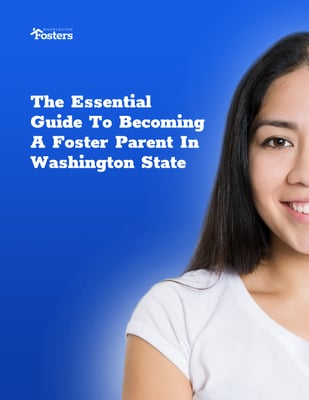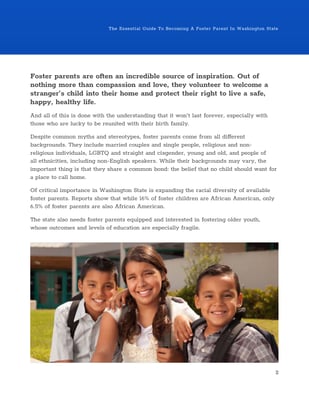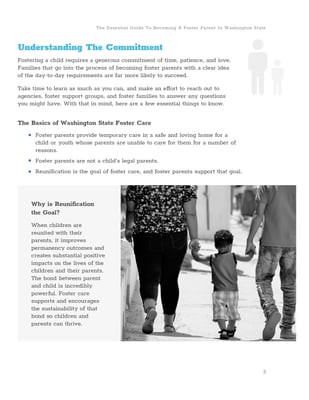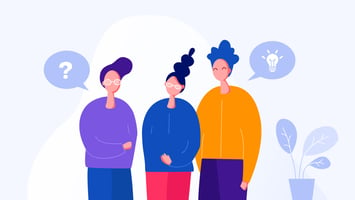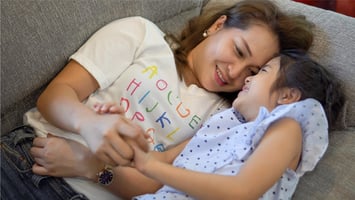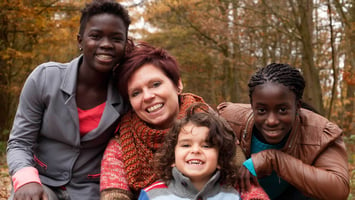Katie Biron is a registered nurse and mother of four. When she adopted her fourth child, a young boy named Grayson, she had the opportunity to connect with Grayson's birth mom. The experience had a profound impact on both of them.
The experience inspired Biron to do more to support connections between caregivers and parents. That's why she started the Family Connections Program, which fosters informal meetings between parents and caregivers.
The goal is simple: to alleviate fears both sides have about each other, and to create a more robust support system for the child.
We sat down with Biron to talk about the program and find out more about it. Here's what she had to say.
Q: What is the Family Connections Program?
Biron: The Family Connections Program is a program designed to offer foster parents and birth parents a facilitated way to meet. And it's really designed around the child who's in foster care.
It's not a time to talk about the case or what brought the child into care. It's really a time to have both the parents and the foster parents sitting together, talking about ways to support the child together.
Download Now: The Essential Guide To Becoming A Foster Parent In Washington State
And so we will talk about things like parents:
- How do you want me to put your child to bed?
- Who are important people that your child might mention are missing?
- What're your child's favorite foods?
- What foods does your child hate?
- Any family traditions we should be aware of?
Q: Why are those informal interactions so important?
Biron: Without [biological parents and foster parents] being able to meet, it's easy for animosity to build. You have all these preconceived notions and judgments of each other, and the longer you go without meeting, the larger the animosity grows until it's almost an us-versus-them battle over the child.
In those cases, the child loses because they're almost caught in a kind of nasty divorce where the parents don't communicate except through the child. And so the child has these divided loyalties and feels like they have to be the middleman between these two parties.
Q: How does this differ from formal meetings between biological parents and foster parents?
Biron: One important difference is that this meeting is not facilitated by a social worker. When we did focus groups around the state, what we heard from both parents and foster parents was overwhelmingly a sense of fear of meeting each other.
If you add the social worker in, everybody is automatically put on guard that it's now a department meeting, and maybe lawyers need to be involved. That really took away from the sense of just having the two parties, that are really most vested in caring for this child, sitting together and talking about the child.

Q: So is it just foster parents and biological parents meeting without anyone else?
Biron: We have peer mentors bringing people into the meeting, and that's been incredibly well received by both caregivers and parents.
When we asked parents and foster parents what would get them to the table, both sides replied that it would really be great to have a peer mentor — someone who gets how they're feeling and goes there to support them.
So, the Family Connections Program has these meetings facilitated by peer mentors. We have experienced foster parents walking alongside the foster parent or kinship caregiver or relative caregiver, bringing them into the meeting, talking to them before, during, and after.
Then we also have parent allies who are parents who have successfully navigated the child welfare system and are now mentoring other parents currently engaged in the system.
Q: When did the Family Connections Program start?
Biron: It was a dream that started about a year and a half ago. I have two kiddos who are adopted. One was adopted at birth. One was adopted from foster care five years ago.
I really got to know their moms and their siblings, and the experience opened my eyes to the need to have a connection and to really work together for a child, whether they're in foster care or they're being adopted.
We had our youngest son placed with us five years ago, and I got to know his mom and his family. I always thought, "We need to get more people together." But, the idea really solidified about a year ago.
We started designing the program and worked hard to make sure all voices were included. We've had people from DCYF. We've had foster parents get involved, relative caregivers, parents, and CASA defense attorneys. We have tried to make sure everybody could be heard at the table.
Q: How far along is the program now?
Biron: The whole program is designed, and we have done informal connections meetings. We'll probably start being able to hold formal, true connections meetings in early 2020.
Then when we get funding, we really want to make sure the foster parent mentor and the parent ally are compensated for their time spent at the meeting. That's been our last hurdle, finding funding so that we can compensate those people. I know for sure we will be starting to run some in very early 2020.
Q: How does the program really benefit kids?
Biron: The kids deserve to have a connection to all the safe adults in their families. Figuring out how we can keep kids connected so that we don't add more trauma to their lives needs to be a priority in child welfare.
Q: Are there any other programs like this?
Biron: There is an icebreaker program that's very similar. It's a facilitated meeting between foster parents and parents, but it's facilitated by the social worker. It used to occur here in Washington State.
What we heard is that once you add the social worker as the facilitator, then the defense attorneys needed to be there. If the defense attorneys are there, then the state's attorneys needed to be there, and it just turned into this big meeting.
That wasn't child-focused or focused on building relationships. Plus, the social workers said they could never get particular caregivers to come because it just felt like one more mandatory meeting. Eventually, that ice breaker program really faded away.
It's a complex relationship on the best of days. Asking people to figure this out without the support of people who have been there before, doesn't work very well.
For example, my daughter's mom had a long history of complex situations. But I really think things could have been different if people had partnered with her instead of continually beating her down.
I'm proud to say she's doing amazing now. She's doing great. She's a big part of our life. It really fueled me knowing her.
Find out how you can connect with a child's parents and give them the support they need. Learn what it takes to become a foster parent. Download our free resource, The Essential Guide To Becoming A Foster Parent In Washington State.


